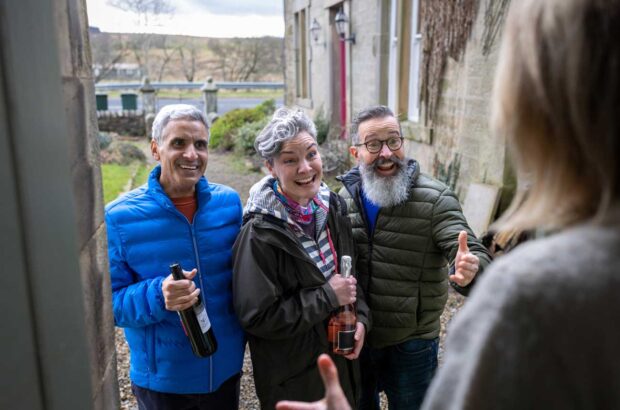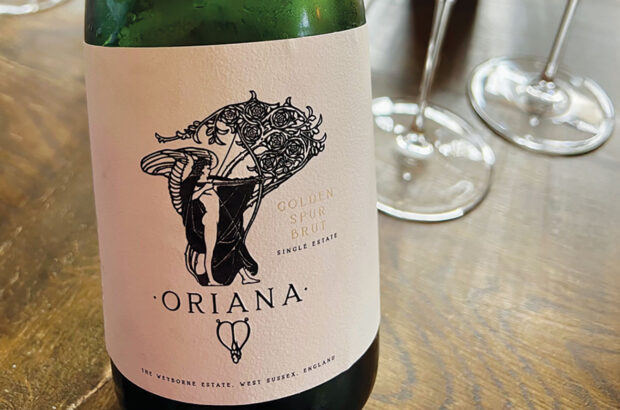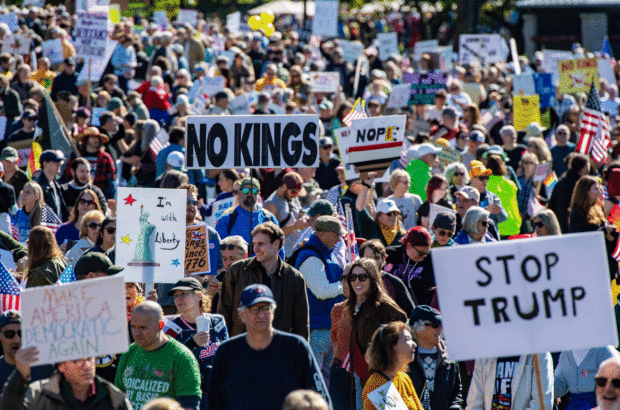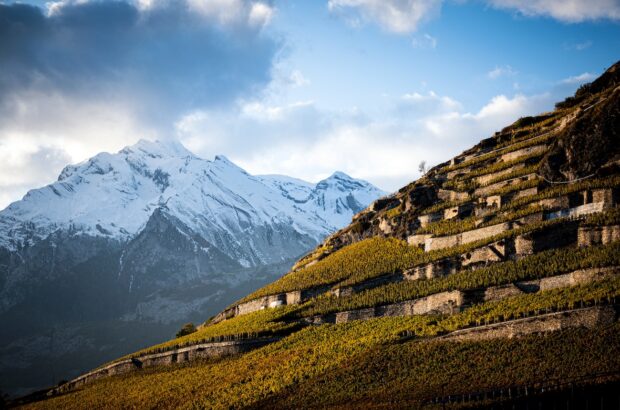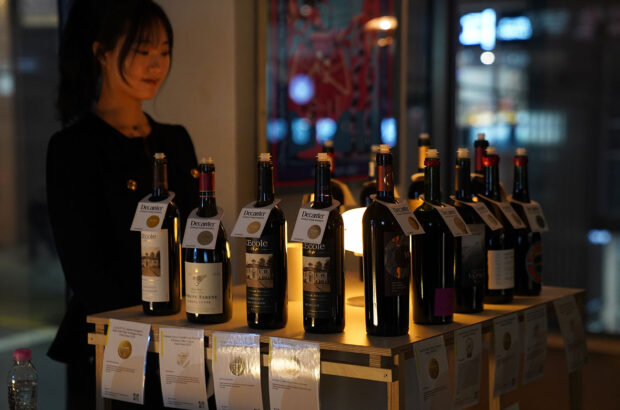Aurelio Montes started from scratch to create one of Chile’s leading producers. He tells BEVERLEY BLANNING MW how – and why – he did it.
The last time I saw Aurelio Montes was a Sunday afternoon in 2004, at a civilised reception just outside Santiago to launch one of the new breed of Chilean super-premium wines. One minute I was standing on the terrace, quietly sipping Sauvignon and admiring the scenery; the next, all eyes were turned to the gleaming white helicopter descending from the blue sky above us. The dashing, tousle-haired pilot leapt out to greet his hosts, beaming widely. It was Montes, a man clearly in his element.
The Aurelio Montes I meet today in a dimly lit Chelsea restaurant is rather different. Away from the oxygen of his homeland, the genial winemaker, usually pictured astride a horse, sits slightly awkwardly on a low armchair, City-smart in a dark suit and crisp, white shirt. Montes is direct. ‘Some people say I’m lucky,’ he says, ‘but I don’t think so. In 90% of life, it’s a matter of taking the right decision.’
Montes’ life-forming decisions began at the tender age of 10, as a middle-class city boy growing up in Santiago. ‘My father bought a piece of land in the countryside, 100km to the west of Santiago,’ he says. ‘It was then that I knew my future life had to take place in open spaces. I decided to study agronomy.’ There was no discovery of wine before he left home, though. There were no other farms or vineyards in the family, and his father worked in insurance.
‘My only contact with wine was Sunday lunch – and that was it,’ he says. In fact, Montes remained ignorant about wine until after he began his university studies, when he discovered that he had the option to take courses in winemaking. He recalls: ‘I took these courses, did rather well and decided to follow it. I’d never thought of it before. I had thought I’d become involved with animals. I’ve always loved horses and cattle and expected that to be my career.’ Now he describes this as his ‘second, unfulfilled, passion’. Career decision number two, after his degree, led him to stints as winemaker at Undurraga and San Pedro.
But after a few years, he had became restless to do things his own way. It was 1987, and Montes realised that ‘Chilean wineries were not going for quality. They were happy to make an average product to sell for an average price. I wanted to make high-quality wines.’ He left to set up his own winery with three business partners, two of whom he still works with (Alfredo Vidaurre, the financial brains of the company, sadly died in February). Aurelio Montes is decisive, but he is not without doubts. He describes the difficulties of this period in his life:
‘I was insecure. My wife had more faith than I did in my decision. It was a critical time for me: I was 39 and I had five children. I thought to myself: “If this works, great, but if not, I’ll never be able to start again”.’
The beginning was tough. He worked day and night, consulting all over Chile to make ends meet. He remembers: ‘Sometimes I woke up thinking I was risking my family. I was working so hard without knowing where I was heading. It was tough for years.’ His determination and persistence paid off. The company grew, and the distinctive ‘angel’ brand is now commonplace throughout the world. Montes’ vineyard holdings have expanded throughout the Colchagua Valley and now include three estates: Apalta, Curicó and, most recently, a 350ha (hectare) estate in Marchigüe, just 24km from the cooling influence of the Pacific Ocean.
In 2004, Montes built a new winery in Apalta for vinification of the company’s top-level wines, the Alpha range (including Montes Alpha M), Folly and Purple Angel. No expense was spared to build the $7-million winery, which has capacity for 2.3 million litres of wine. The property includes a lagoon, parks and gardens, and was designed with the aid of a feng shui expert. This was partner Douglas Murray’s idea, explains Montes.
‘He’s the spiritual guy,’ he says.‘We thought he was crazy, but we let him try it. I ended up thinking it’s very logical. It organises things naturally and aesthetically, it keeps the energy there – and it’s pretty. It’s peaceful and practical, and a wonderful place to visit.’Since 2002 Montes has been making wine in Argentina. He decided to expand because, ‘we had extra energy to burn and didn’t want to push the Montes brand any further’. Argentina he considers ‘an interesting challenge – they are more informal over there’. He has bought 95ha of land, in Vistalba and Agrelo. The wines – Kaiken and Kaiken Ultra – are in the big, ripe, smooth style for which Montes is known. So far, there is a Cabernet Sauvignon and a Malbec, though he has plans to expand the range: ‘With just Malbec and Cabernet we won’t get too far.’
‘We do more or less the same things in Argentina as we do in Chile,’ he says. Comparing the wines from the two countries, he comments: ‘The tannin structure is better in Argentina and the flavour profile is better in Chile.’ As with the Montes wines from Chile, which are sold almost exclusively overseas (only 5% is consumed domestically), Kaiken is now among the top 20 wines exported from Argentina (and a Decanter award winner in the Argentinian Malbec panel tasting of May 2007). Montes travels to Argentina every three weeks to supervise the operation. He describes his involvement in the wineries as ‘very hands-on without being in the small details’.
After Argentina was up and running, a new challenge beckoned. He explains: ‘We decided Chile and Argentina were enough for the southern hemisphere. But harvesting once a year is too little.’ What could an ambitious winemaker do? Unsurprisingly, he looked north – to Napa. ‘This is more of a personal challenge,’ he explains. ‘It’s a cathedral of wine.And we wanted to show we could do it on our own, with no need for a joint venture.’ The Napa wine – unreleased and, as yet, unnamed – is made ‘following the typical Montes model’. This involves ‘control of viticulture, ripeness and style of winemaking’. Montes claims it has more control than most winemakers in Napa over its grape growers and is keen to point out that it is the very last to pick, a decision reflected in the style of the wines.
Both of his sons are involved in the business and followed their father to study oenology at the Catholic University. Aurelio Junior worked at Rosemount in Australia, Franciscan in Napa and Ventisquero in Chile, before joining the family company. His second son, Matías, works as an assistant to top Chilean viticulturist Eduardo Silva. One imagines Montes might be a difficult role model to follow. ‘Yes, they admire me, but are scared as well,’ he confirms. He says he is a ‘terrible’ boss to his sons. ‘I’m very tough in judging what they do and not very friendly in the way I tell them. If things aren’t exactly as I want, I can be very tough. And my sons aren’t like my other employees; they dare to contradict me!’
Nevertheless, whether it is via genes or persuasion, Aurelio Junior shares his father’s way of thinking: ‘He’s following my style, but it’s because he believes it is right,’ says his father. ‘You have to do what the market wants. Otherwise, you can’t survive.’ Aurelio Montes Senior does not look about to hand over the reins of his business to anyone, any time soon. He describes what he does as a way of life. ‘I could sell my shares, but what would be the use of that? If I sat at home, in a month I would be dead. I’m busy, but I never complain because I enjoy it so much.’ His plans for the future are, he claims, ‘to develop what we already have, rather than thinking about new ventures.’ He pauses. ‘But I’m always trying to discover new things… you never know.’ He pauses again for a moment, then leans forward, on the edge of his seat. ‘Tell me: what do you think of Portugal?’
Website: monteswines.com



